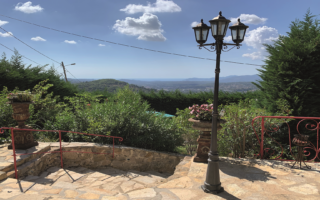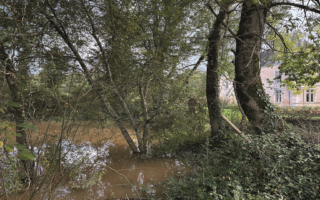Healthcare in France
Learn the ins and outs of the healthcare system across the Channel…
The French are very proud of their healthcare system, and expats from the UK are often impressed with the speed and quality of service. Nonetheless, treatment is far from free. The healthcare system (l’assurance maladie) is financed through contributions to the social security fund (colloquially known as la s�cu) and fees at the point of treatment. For example, in France patients pay to see their GP. Depending on the condition, treatment and the practitioner, the state refunds the patient an amount of the cost involved. UK expats living in France are entitled to use the French healthcare system. The amount they will have to pay to do so varies depending on individual circumstances. In 2000 the government introduced a new law to make healthcare accessible to all legal residents of France, irrespective of their income level.
This new scheme of universal health cover, called the couverture maladie universelle (CMU), was designed to let everyone join the government-run healthcare scheme (although there are exceptions, as explained below). There are two levels to the scheme. The CMU de base offers healthcare to people of all income levels who don’t already contribute to the scheme in another way, for example through their employer. The CMU de base is funded by contributions set at 8% of household income above a certain threshold which is changed periodically. The current threshold at the time of writing is €9,029/�7,621. Anyone with a household income below that amount does not have to pay contributions to the scheme as they are covered by la CMU compl�mentaire, which offers completely free healthcare to those on very low incomes. The only group that are not allowed to join the CMU are EU expats who move to France but are below state retirement age so do not receive a state pension and do not work in France. They cannot join until they have lived in France for five years. Instead, they have to fund their healthcare through private insurance. If they have paid enough NI contributions in the UK in the last three years, they may be eligible for an S1 form (which replaced the E106 last year). This will give them the right to French healthcare, without paying contributions from their income, for up to two and half years. The form is available from the Overseas Healthcare Team in Newcastle upon Tyne.
UK citizens who do get a UK state pension have access to French healthcare without having to pay contributions, if they are in receipt of an S1 form from the UK Overseas Pensions Department in Newcastle (until last year they applied for an E121). If the person who is retired has dependents, such as a spouse, who is not yet in receipt of a state pension, then the S1 will cover them as well.
Expats who live permanently in France and work there, either as an employee or as self-employed, will pay social security contributions from their wages or income and therefore will be able to join the French healthcare scheme. Employees will be registered for social security automatically by their employer. Self-employed people have to pay into a particular fund, such as URSAFF or the RSI, depending on the type of job they have. To join the French healthcare scheme, residents need to sign up at their local Caisse Primaire d’Assurance Maladie (CPAM) – the organisation which administers the healthcare fund. There are offices all over France – the local mairie can direct residents to their nearest branch.
Once registered, the CPAM will issue a plastic card, la carte vitale, which includes the bearer’s photo and ID. Patients show this at every medical appointment to prevent fraud. It is also then swiped at the point of payment, to automatically inform CPAM that the owner has paid for treatment so the reimbursement can be processed. The amount reimbursed depends partly on the nature of the condition. As a rule of thumb, about 70% of the cost is paid back, but in cases of chronic illness or pregnancy, often 100% is paid back. It also depends on which practitioner the patient sees. For example, since 2006 French residents have to designate a GP. Patients are free to visit another GP if they wish but they will not be reimbursed to the same level as if they saw their chosen doctor. Medical professionals can choose whether to charge prices that are within the state’s guidelines, which means they are conventionn�, or to charge more for their services (nonconventionn�).
If residents choose to be treated by a nonconventionn� medical professional, they will only be reimbursed up to the conventionn� limit. The extra charges that won’t be reimbursed are called d�passements. Dental treatment for essential work such as fillings, extractions or gum disease treatment is 70% reimbursed by the state (as long as the dentist is conventionn�).
Dentists are free to set their own prices for prosthetic work such as crowns, bridges or dentures but the state sets a limit on the amount it will reimburse. Orthodontic work is not reimbursable for adults. Glasses and hearing aids are also reimbursable to a certain degree but again the state sets a limit on what it will refund. People can take out a complementary insurance to cover the difference between the amount the state reimburses and what they pay. There are many providers of this type of cover in France, some run by co-operatives and others by private companies. It pays to shop around and compare quotes as the market is quite competitive.
Even with a top-up insurance policy, there are flat fees that are applied which are not reimbursed by either the state or the insurance. These include costs such as €1/�0.84 for every doctor’s visit and €18/�15.20 for every time you are given hospital treatment. Those visiting France for up to 90 days should at least have the EHIC – the European Health Insurance Card – which covers them for emergency healthcare while in the EU. This won’t give comprehensive health insurance cover, such as repatriation costs, however, so it is always advisable for visitors to take out travel insurance if they are thinking of travelling to France. LF
www.amelie.fr www.cmu.fr
WORDS: LUCY-JANE CYPHER
Share to: Facebook Twitter LinkedIn Email


